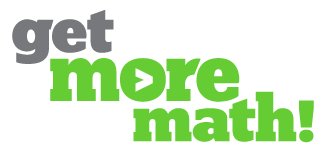My simple strategy for long-term math retention
Donald Spangler, Teacher and Department Chair, Lampeter-Strasburg School District
Donald Spangler is in his 17th year of teaching high school algebra and is the math department chair at Lampeter-Strasburg School District in Lancaster County, Pennsylvania.
Even the best math teachers have had students who ace the chapter tests just to go on and struggle with that same content on the final exam—or students who have a hard time grasping more advanced concepts because they’ve forgotten the foundational learning that came before. As a high school math teacher for more than 15 years, I’ve seen it happen again and again.
Long-term math retention can be elusive. For students to succeed in math, they need to master precursor concepts—foundational, grade-level skills—yet traditional classroom routines focus more on cramming in new information. As a result, while students might be able to recall newly learned concepts for an immediate assignment or end-of-unit assessment, their grasp on these concepts fades over time.
Ensuring that math concepts stick is critical because so many new math lessons build on the information that has come before. If students don’t transfer this knowledge to their long-term memory, the consequences can be detrimental to their achievement in the future.
Luckily, there is a simple, proven strategy teachers can use to improve long-term math retention—cumulative math practice. I’ve used this strategy in my math classroom for many years and have seen phenomenal results. Here’s how to use cumulative math practice to improve long-term math retention.
The key to success: Cumulative math practice
To break the “learn-forget, learn-forget” cycle, educators can mix in a review of earlier content as students learn new concepts and provide targeted, individualized practice.
Cumulative review doesn’t have to take time away from instruction. For example, in my algebra classroom, I give students practice problems that focus not just on the latest skill or concept we’ve recently covered, but also on concepts from prior units of instruction.
I follow a similar process for exams: Every test I give is a cumulative assessment of students’ knowledge, with questions that pertain to their prior learning and items constructed around the current topic.
Because students are repeatedly practicing and reviewing everything they’ve learned to date in my course, there is no need for them to “cram” for the final exam. In a sense, they have been preparing for that moment throughout the entire year because I want them to retain what they’ve learned long after they take an exam.
Avoid surprises with highly targeted practice
There are a variety of programs and solutions available to support math instruction. I’ve found success using Get More Math—a tool designed to break the math forgetting cycle.
Get More Math provides targeted practice that combines new and previously learned material to enhance long-term retention. As the school year progresses, I choose the types of problems I want students to practice and master—while Get More Math integrates a spiral review of old concepts to ensure students retain their prior math skills.
To improve upon the “typical day” I split class time between new and previously covered content. Here’s how I allocate time:
- Teach that day’s lesson.
- Provide any assignments related to that day’s lesson.
- Allocate time for mixed review—dedicated, independent sessions for cumulative practice.
This cumulative approach has led to unbelievable gains in my students’ long-term math retention, and their confidence has soared.
At the end of one semester, I had a student ask me, “Why would somebody ever teach any other way? When I got to the final exam, it was just like any other test.” It was one of the best moments I have ever shared with a student. There weren’t any surprises on the final exam because my students had seen this material every day throughout the year.
A cumulative approach to math instruction that mixes in a review of earlier concepts as students practice new skills can break the “learn, forget; learn, forget” cycle. It helps build students’ knowledge and confidence in math, resulting in proven growth in student achievement. Most importantly, it sets the foundation for students to succeed—both now and in the future.
ORIGINAL ARTICLE:
https://www.eschoolnews.com/2022/06/22/my-simple-strategy-math-retention/
